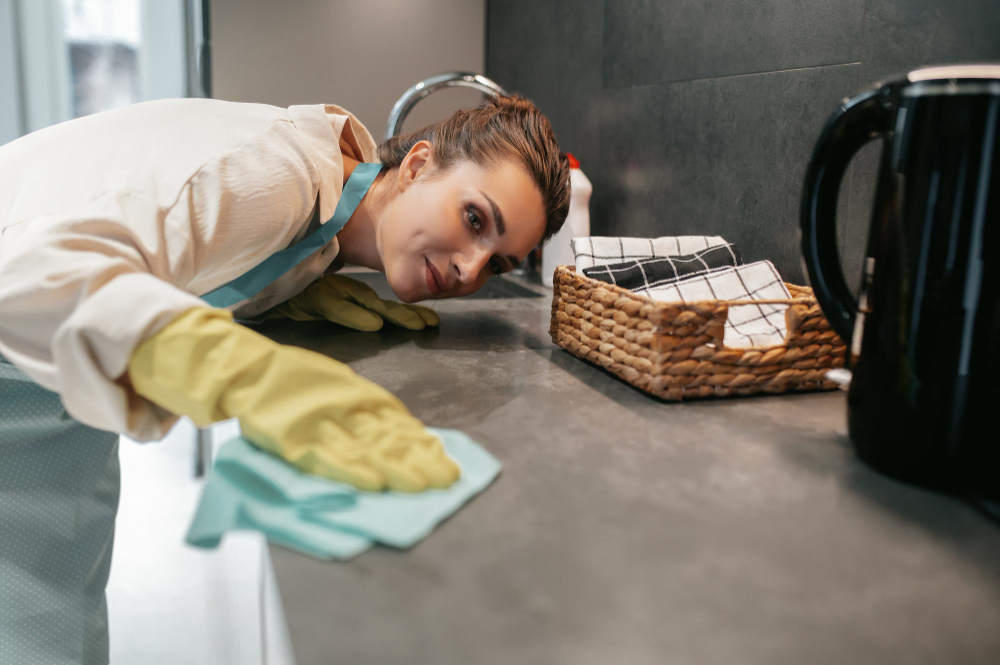
In today's fast-paced world, where work-life balance is often a juggling act, we spend a large chunk of our lives in the workplace. With countless hours spent in the office, the way we handle food safety and cleanliness is vital not just for our well-being but also for the overall productivity of our work environment.
Understanding and implementing food safety practices in the workplace isn't just about ticking health and safety boxes; it's about creating a company culture that supports the health and happiness of every employee. This comprehensive guide will explore everything you need to know to maintain stringent food safety standards at your place of business, because the only thing that should be spreading in your office is success, not sickness.
Promoting cleanliness and hygienic practices in the office is more than a courtesy; it's a strategic approach to maintaining a healthy work environment. Illnesses can spread quickly in a shared space, leading to a significant decrease in productivity as sick days pile up. A workspace that prioritizes food safety not only reduces the risk of illness among team members but also fosters an environment of trust and respect, which are essential for employee morale and retention.
In addition, companies are increasingly being held liable for illness outbreaks in the workplace, which can result in legal repercussions and a tarnished reputation. Demonstrating a proactive approach to food safety can protect your employees and your business from potential harm.
Implementing a food safety program is not simply about creating and enforcing rules; it's about ensuring that every employee understands and values the program. Here are a few ways to establish food safety as a cornerstone of your office culture:
Establishing best practices for food safety is the foundation for a clean and hygienic work environment. These practices not only help to prevent foodborne illnesses but also contribute to the overall cleanliness of the office. Here are some key practices to ensure everyone stays safe and healthy:
There are legal and sanitary guidelines set by regulatory bodies that should be adhered to in the workplace. Familiarize yourself with food safety regulations, such as those provided by the FDA and local health departments, and ensure your practices comply with these standards. Common regulations include maintaining temperature logs, ensuring proper ventilation, and preventing pests in food handling areas.
Awareness of food allergies is crucial in the workplace. Encourage staff to be mindful of their colleagues' allergies and to label any food brought into the office that may contain allergens. In addition, create a protocol for handling allergy-related emergencies, such as keeping emergency medication on-site and designating trained staff to administer it if necessary.
While proper food handling is essential, the physical eating environment can also contribute to food safety. Here are some additional aspects to consider:
Maintaining a consistently clean office environment isn't just about aesthetics; it's about upholding a professional workplace that values the well-being of its employees. When selecting a cleaning service for your office, it is important to consider factors such as experience, reputation, and the specific services offered.
S&W Janitorial Services, based in Los Angeles, CA, understands the unique cleaning needs of a professional workplace. With a focus on quality and customer satisfaction, their team can help enhance the cleanliness and food safety of your office. Here are some specialized services they offer:
The importance of safety and cleanliness in the workplace cannot be overstated. By implementing a comprehensive food safety program, promoting good hygiene practices, and investing in professional cleaning services, you not only protect the health of your employees but also create a conducive environment for productivity and success.
To learn more about how S&W Janitorial Services can improve the cleanliness of your Los Angeles office and contribute to your workplace's food safety, contact their team for a customized cleaning plan today. In doing so, you take a proactive step toward securing a safe and healthy workplace for your employees, one that is free from potential hazards and encourages peace of mind. If you need help with office cleaning in Los Angeles, CA, contact S&W Janitorial Services today to request a quote.